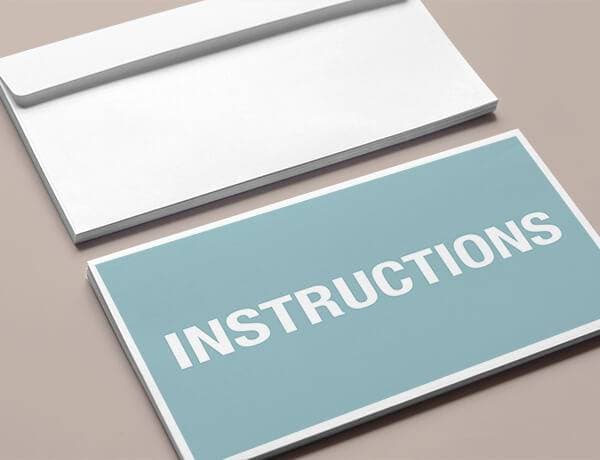Please provide your information and submit this form. Our team will be in touch with you shortly.
American actor Lee Marvin once said, “As soon as people see my face on a movie screen, they knew two things: first, I’m not going to get the girl, and second, I’ll get a cheap funeral before the picture is over.”1
Most people don’t spend too much time thinking about their own funeral, and yet many of us have a vision about our memorial service or the handling of our remains. A letter of instructions can help you accomplish that goal.
A letter of instructions is not a legal document; it’s a letter written by you that provides additional and more-personal information regarding your estate. It can be addressed to whomever you choose, but typically, letters of instructions are directed to the executor, family members, or beneficiaries.
Make a Cheat Sheet
Think of a letter of instructions as a “cheat sheet” to your estate. Here are a few ideas and concepts that may be included:
- The location of important legal documents, such as your will, insurance policies, titles to automobiles, deeds to property, etc.
- A list of financial assets, including savings and checking accounts, stocks, bonds, and retirement accounts. Be sure to include account numbers, PINs, and passwords where applicable.
- A list of pensions or profit-sharing plans, including the location of their explanatory booklets.
- The location of your latest tax return and Social Security statements.
- The location of any safe deposit boxes and their keys.
Identify Funeral Wishes
A letter of instructions is also a good place to leave burial or cremation wishes. You should consider giving the location of your cemetery plot deed, if you have one. You may even wish to specify which hymns or speakers you would like included in your memorial service. Although a letter of instructions is not legally binding, your heirs will probably be glad to know how you would like to be remembered. It also may be helpful to leave a list of contact information for people who should be notified in the event of your death.
There is no “best way” to write a letter of instructions. It can be written in your style and reflect your personality, or it can be written to simply convey information. You should decide what type of letter best fits your estate strategy.
1. Brainyquote.com, 2019


